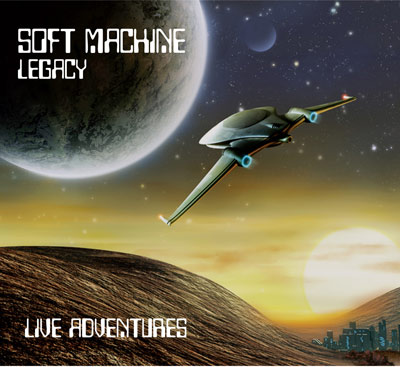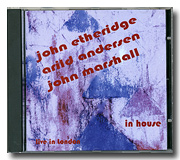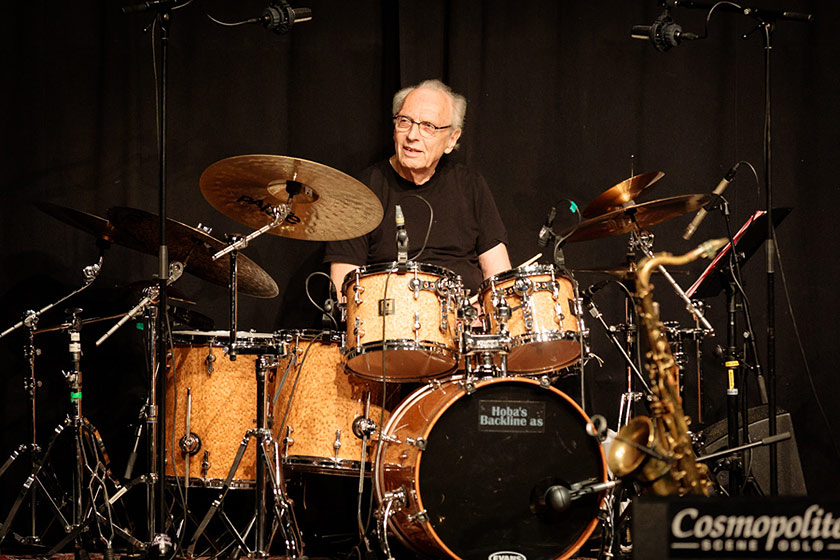
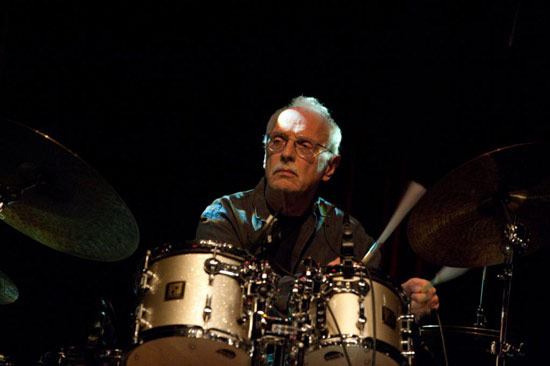
| John Marshall |
|
Private lessons with several teachers, including Johnny Russell,
Jim Marshall, Allan Ganley and Philly Joe Jones. First regular engagement was with Alexis
Korner’s Blues Incorporated, 1964. Then with the Graham Collier Sextet, 1965-70, during
which time he also played with John Surman, John McLaughlin, Dave Holland, Mike Westbrook,
Graham Bond Organization, Joe Harriott, Indo-Jazz Fusions, Keith Tippett’s Sextet and
Centipede, Alan Skidmore and others. 1969 he was a founder member of Nucleus, which won
first prize at the Montreux Festival the following year and played the Newport Festival
and the Village Gate in New York. At the beginning of 1969 he also became a regular member
of the Mike Gibbs Orchestra.
1971 he left Nucleus to join the Jack Bruce Band; 1972 joined Soft Machine. During the 70’s he also played with many leading American and European musicians, including Larry Coryell, Gary Burton, Mary Lou Williams, Ronnie Scott, Tubby Hayes, Ben Webster, Milt Jackson, Roy Eldridge,John Taylor,Norma Winstone,Volker Kriegel,Gordon Beck,George Gruntz’s Piano Conclave et al. In 1973, at the Baden-Baden Free Jazz Meeting, he met and began playing with Charlie Mariano, Jasper van’t Hof and Philip Catherine. 1977 he joined Eberhard Weber’s Colours until it disbanded at the end of 1982. During the 80’s and into the 90’s worked with the Gil Evans Orchestra, NDR Big Band in Hamburg, Ian Carr, John Surman - Quartet and Brass Project, Kenny Wheeler (quintet and Big Band), Uli Beckerhoff, Anthony Braxton, Manfred Schoof, Joachim Kühn, Michel Portal, John Taylor, Alan Holdsworth, Norma Winstone, Gordon Beck, Jeff Clyne, Arild Andersen and John Abercrombie among others. In addition, studio work, drum clinics, as well as lectures and teaching on workshops in Germany (Trier, Bremen and Weimar) and England (Guildhall, Royal Academy of Music and Wavendon). Was a Melody Maker Poll Winner in 1973 and 1974. Has worked with many singers including Sarah Vaughan, Leon Thomas, Norma Winstone, Annie Ross, Elaine Delmar and Karin Krog. Activities continued, both nationally and internationally, with John Surman - plus projects with Steve Swallow, Andy Sheppard, Uli Beckerhof, John Abercrombie, Arild Andersen, Michael Gibbs, John Etheridge, Theo Travis, Joe Sachse, Dieter Glawischnig and others. Tours and recording with bass player Arild Andersen and Greek pianist Vassilis Tsabropoulos - second ECM album,Triangle, February 2004. 2002: new project, Softworks, with other ex -Soft Machine members Elton Dean, Hugh Hopper and Allan Holdsworth. Album, Abracadabra, plus festivals and tours in USA, Japan, Italy.... This morphed into The Soft Machine Legacy with John Etheridge replacing Allan and, after the deaths of Elton and Hugh, with Theo Travis and Roy Babbington. Since 1999, he has worked with former Soft Machine co-musicians in several Soft Machine-related projects like SoftWare, SoftWorks and Soft Machine Legacy. He is currently touring as a member of the band (November 2018). New Studio Album 2023: Soft Machine "Other Doors" John Marshall died on 16 September 2023, at the age of 82 |
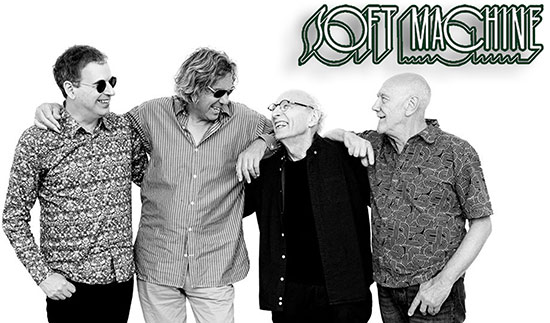
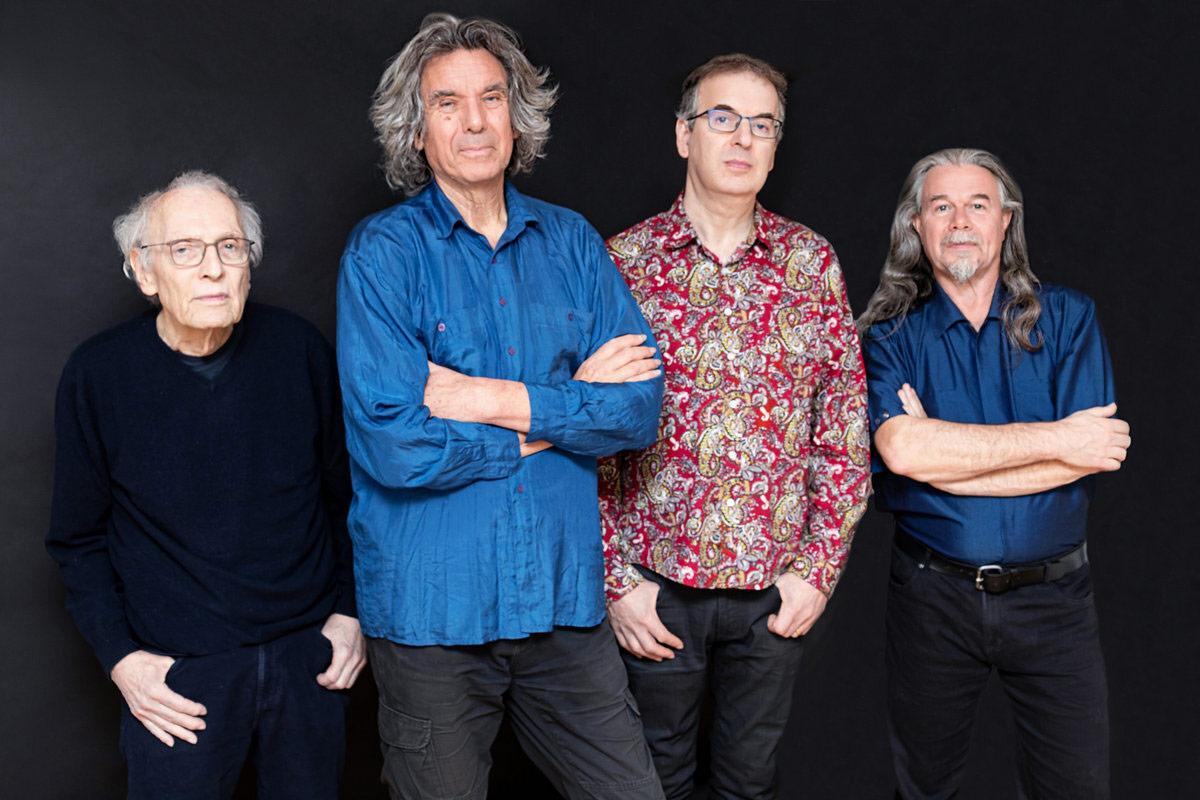 Soft Machine 2023:
Soft Machine 2023:JOHN ETHERIDGE - guitars
THEO TRAVIS - tenor & soprano sax, flutes, Fender Rhodes,
FREDDY BAKER - fretless bass guitar
JOHN MARSHALL - drums
special guest: ROY BABBINGTON - bass guitar
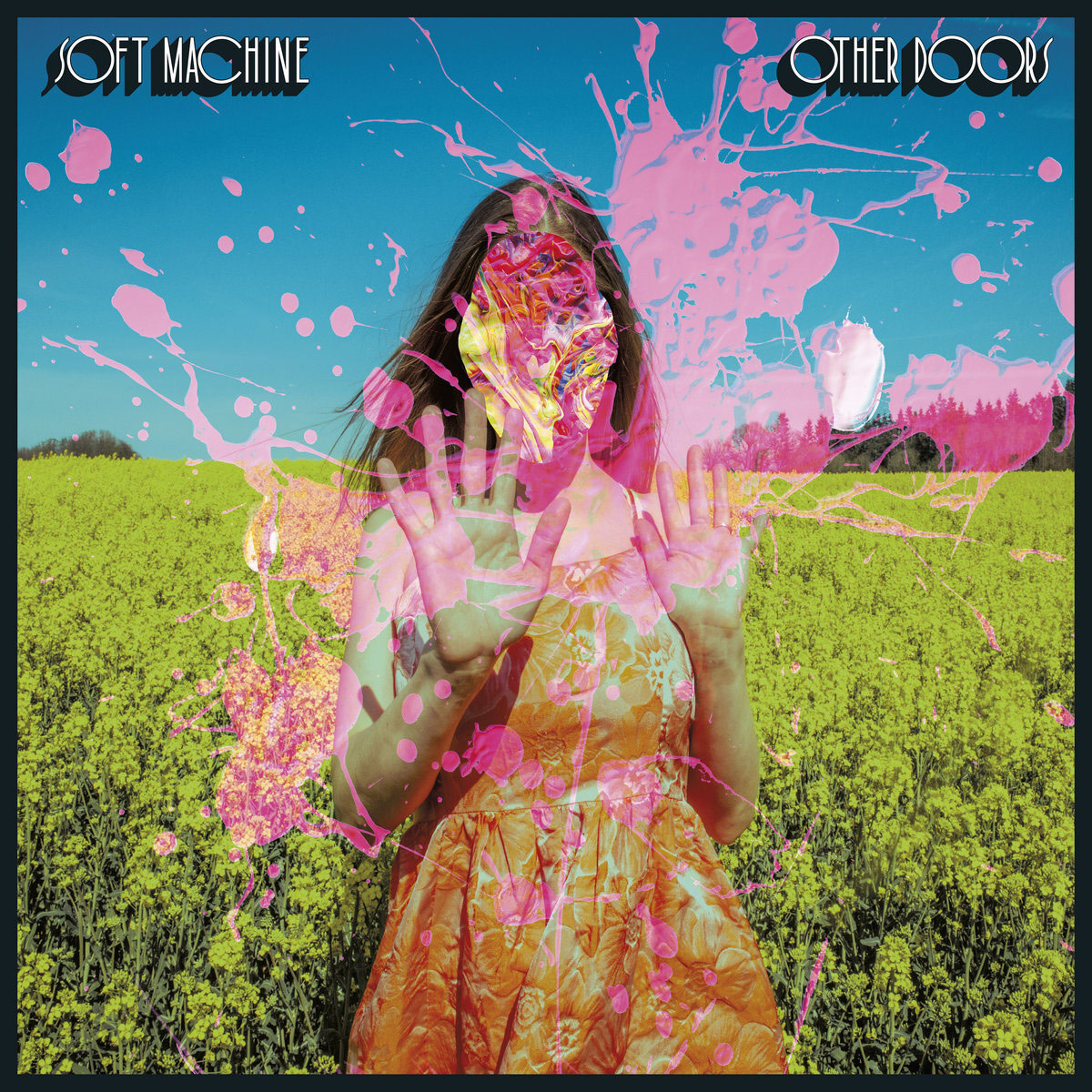 Soft Machine "Other
Doors" - 2023
Soft Machine "Other
Doors" - 2023 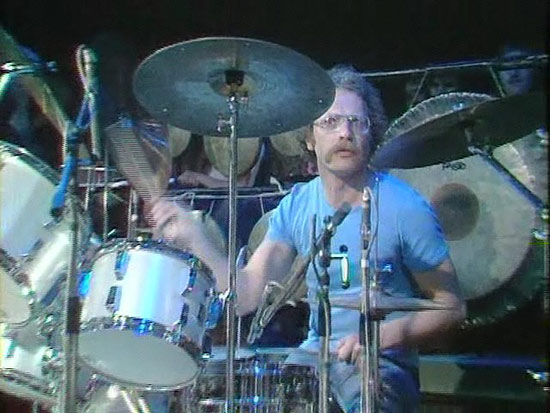
|
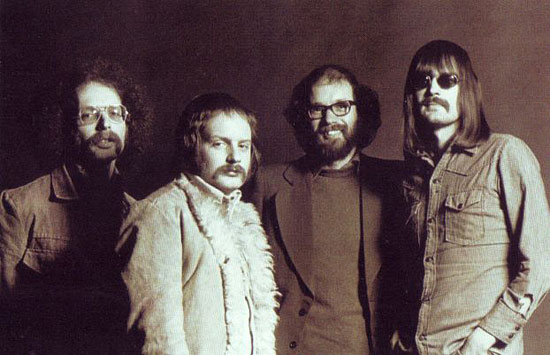 SOFT MACHINE
SOFT MACHINE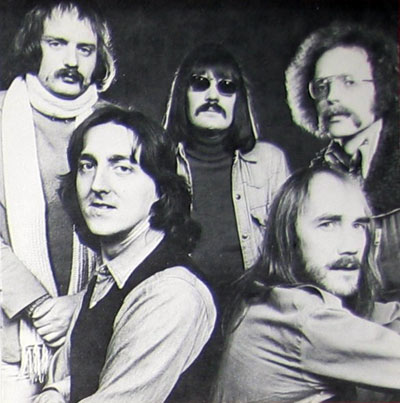 SOFT MACHINE
SOFT MACHINEKarl Jenkins, Allan Holdsworth, Mike, Roy Babbington, John Marshall).
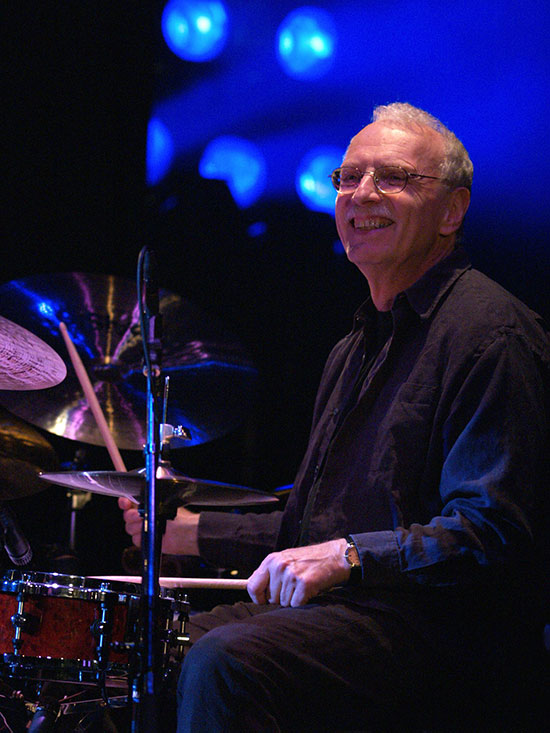 Naoju
Nakamura
Naoju
Nakamura
|
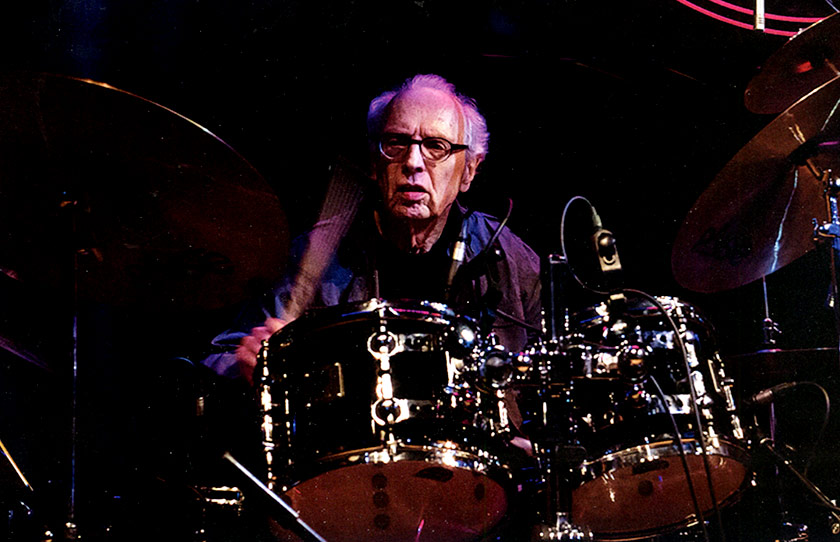
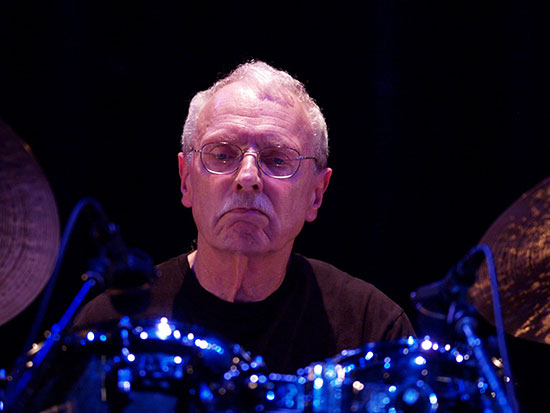 Naoju
Nakamura
Naoju
Nakamura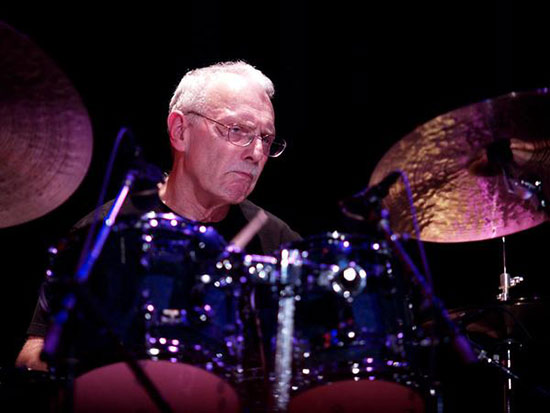 Naoju
Nakamura
Naoju
Nakamura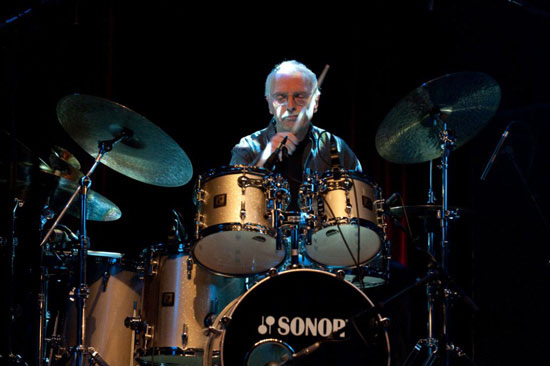
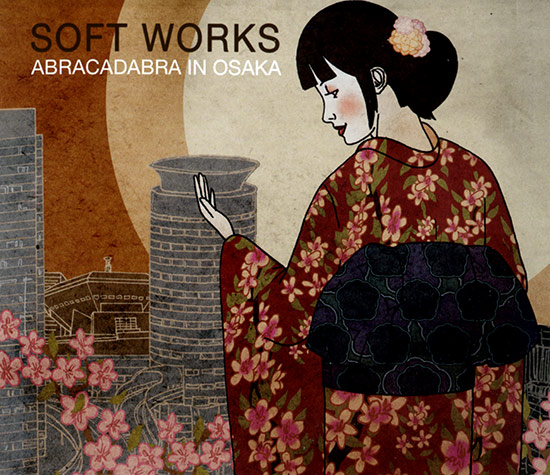
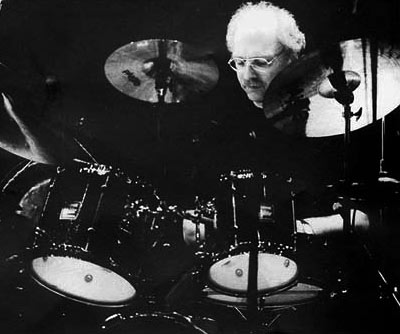
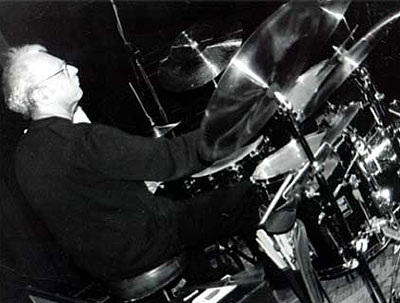 John
Marshall
John
MarshallTrio with Arild Andersen and Vassillis Tsabropoulos)
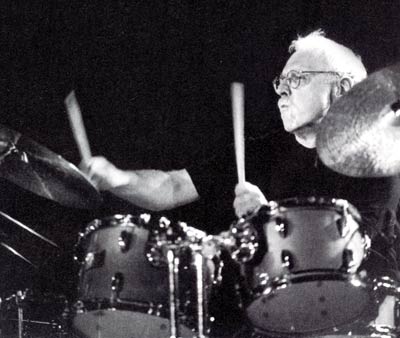
|
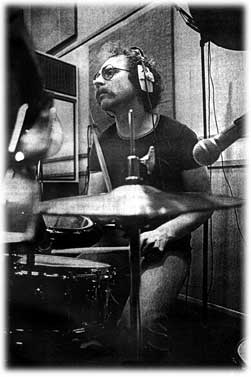
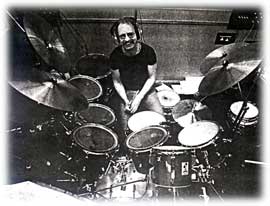 thanks for your visit!
thanks for your visit!
CLICK:
the 500 Top Drummers:
the 500 Top Drummers:
|
Matt Abts
Alex Acuna Daniel Adair Chris Adler Morgan Agren Airto Tommy Aldridge Tim Alexander Rashied Ali Don Alias Carl Allen Tony Allen Cliff Almond Barry Altschul Robby Ameen Scott Amendola Animal Charly Antolini Carmine Appice Vinny Appice Kenny Aronoff Joe Ascione Mick Avory Marcel Bach Manolo Badrena Colin Bailey Donald Bailey Ginger Baker Jeff Ballard Joe La Barbera Danny Barcelona Travis Barker Barriemore Barlow Joey Baron Ranjit Barot Julio Barreto Ray Bauduc Eddie Bayers Marcus Baylor Frank Beard Carter Beauford Bruce Becker Poogie Bell Louie Bellson Frank Bellucci Brian Bennett Han Bennink Joe Bergamini Tal Bergman Jon Bermuda Schwartz Ignacio Berroa Denzil Best Pete Ray Biggin Curt Bisquera Gregg Bissonette Jason Bittner Roger Biwandu Dave Black James Black Jim Black Cindy Blackman John Blackwell Brady Blade Brian Blade Hal Blaine Art Blakey Jason Bonham John Bonham Gergo Borlai Paul Bostaph Terry Bozzio Paulo Braga Dirk Brand Jimmy Branly Tom Brechtlein Amir Bresler Don Brewer Gerry Brown Bill Bruford Ronald Bruner Jr. Jack Bruno Mark Brzezicki Roy Burns Ronnie Burrage William Calhoun Clayton Cameron Matt Cameron Gorden Campbell Teddy Campbell Tommy Campbell Emmanuelle Caplette Danny Carey Keith Carlock Bun E. Carlos Karen Carpenter Terri Lyne Carrington Bernhard Castiglioni Joey Castillo Lenny Castro Deen Castronovo Big Sid Catlett André Ceccarelli Dave DiCenso Gary Chaffee Matt Chamberlain Jimmy Chamberlin Dennis Chambers Joe Chambers Ndugu Chancler Jim Chapin Gary Chester Jon Christensen Kenny Clare Greg Clark Mike Clark Kenny Clarke Doug Clifford Tommy Clufetos Jimmy Cobb Billy Cobham Vinnie Colaiuta Cozy Cole Chris Coleman Cora Coleman-Dunham Tony Coleman Phil Collins Bobby Colomby Aaron Comess Luis Conte Tre Cool Ray Cooper Stewart Copeland Kirk Covington René Creemers Adam Cruz Sylvia Cuenca Abe Cunningham Mickey Curry Andrew Cyrille Nick D'Virgilio Paulinho Da Costa Duduka Da Fonseca Brann Dailor Dino Danelli Zach Danziger Flo Dauner Chris "Daddy" Dave Alan Dawson Mikkey Dee Barrett Deems Jimmy DeGrasso Adam Deitch Jack DeJohnette Kenwood Dennard John Densmore Wim DeVries Dave DiCenso Rick Dior Marko Djordjevic Warren "Baby" Dodds Peter Donald Virgil Donati Gabor Dornyei Paul Douglas Brian Downey Hamid Drake Bernie Dresel Martin Drew The Drumbassadors Billy Drummond Aynsley Dunbar Sly Dunbar Frankie Dunlop Mario Duplantier Bobby Durham Sheila E. Phil Ehart Dave Elitch Paul Elliott Sonny Emory Bertram Engel Peter Erskine Dom Famularo Pierre Favre Steve Ferrone Anton Fig Vera Figueiredo Sammy Figueroa Larry Finn Eric Fischer Mick Fleetwood Duduka Da Fonseca George Fludas D.J. Fontana Hannah Ford-Welton Shannon Forrest Al Foster Vernel Fournier Panama Francis Joe Franco Brian Frasier-Moore Josh Freese Kiko Freitas Steve Gadd James Gadson Richie Gajate-Garcia David Garibaldi Matt Garstka Mel Gaynor Jason Gianni Andy Gillmann Marcus Gilmore Nikki Glaspie Daniel Glass Evelyn Glennie Jim Gordon Danny Gottlieb Jimmy DeGrasso Eric Kamau Gravatt Milford Graves Benny Greb Sonny Greer Rayford Griffin Dave Grohl Freddie Gruber Donny Gruendler Maison Guidry Mark Guiliana Terreon Gully Trilok Gurtu Ralf Gustke Tomas Haake Wolfgang Haffner Omar Hakim Matt Halpern Chico Hamilton Jeff Hamilton Lionel Hampton Jake Hanna Eric Harland Buddy Harman Gavin Harrison Mickey Hart Billy Hart Steve Hass Fritz Hauser Roger Hawkins Taylor Hawkins Louis Hayes Roy Haynes Richie Hayward Albert Tootie Heath Levon Helm Gerry Hemingway Don Henley Horacio Hernandez Claus Hessler Gerald Heyward Giovanni Hidalgo Billy Higgins Jeff Hirshfield Jon Hiseman Ari Hoenig Gene Hoglan Rodney Holmes Steve Houghton Daniel Humair Ralph Humphrey Gary Husband Zakir Hussain Greg Hutchinson Susie Ibarra Tommy Igoe Tris Imboden Al Jackson Duffy Jackson Gene Jackson Huub Janssen Bobby Jarzombek Akira Jimbo Jonas Johansen Jack DeJohnette Gus Johnson Mike Johnston Daru Jones Elvin Jones Harold Jones Papa Jo Jones Philly Joe Jones Rufus "Speedy" Jones Steve Jordan Joey Jordison Jonathan Joseph Manu Katché Senri Kawaguchi Jim Keltner Will Kennedy Billy Kilson George Kollias Glenn Kotche Joey Kramer Bill Kreutzmann Gene Krupa Russ Kunkel Joe La Barbera Abe Laboriel, jr. Gene Lake Don Lamond Thomas Lang Dave Langguth Shannon Larkin Pete LaRoca Sims Karl Latham Rick Latham Trevor Lawrence Jr. Ricky Lawson Chris Layton Tommy Lee Felix M. Lehrmann Paul Leim Stan Levey Larnell Lewis Mel Lewis Victor Lewis Pete Lockett Dave Lombardo Larrie Londin John Longstreth Hakim Ludin Ray Luzier Peter Magadini Mike Mangini Shelly Manne Brian "Brain" Mantia Sherrie Maricle Rick Marotta John Marshall Billy Martin Pedrito Martinez Ken K. Mary Harvey Mason Nick Mason Pat Mastelotto Dave Mattacks Phil Maturano JoJo Mayer Marilyn Mazur Nicko McBrain Joe McCarthy George Spanky McCurdy Jason McGerr Russ McKinnon Marvin McQuitty Buddy Miles Butch Miles Russ Miller Marco Minnemann Mike Mitchell Mitch Mitchell Joseph Ziggy Modeliste Jonathan Moffett Mark Mondesir Drori Mondlak Keith Moon Eric Moore Stanton Moore Steve Moore Airto Moreira Joe Morello Rod Morgenstein Joe Morris Nate Morton Paul Motian Famadou Don Moye Alphonse Mouzon Jonathan Mover Moritz Mueller Idris Muhammad Narada Lewis Nash Sandy Nelson Andy Newmark Jost Nickel Anika Nilles David Northrup Gary Novak Nippy Noya Adam Nussbaum Volkan Oektem Jamie Oldaker Nigel Olsson Tony Oxley Ian Paice Carl Palmer Earl Palmer Francis Panama Toss Panos Chris Parker Leon Parker Vinnie Paul Jim Payne Sonny Payne Lee Pearson Neil Peart Shawn Pelton Clarence Penn Chris Pennie Armando Peraza Karl Perazzo Stephen Perkins Charli Persip Ralph Peterson Pat Petrillo Simon Phillips Diego Piñera Jeff Porcaro Mike Portnoy Cozy Powell Bobby Previte Thomas Pridgen Aquiles Priester Dafnis Prieto Tito Puente Bernard "Pretty" Purdie Alvin Queen Jeff Queen Questlove Johnny Rabb Tobias Ralph Stanley Randolph Rich Redmond Raul Rekow Walfredo Reyes, Jr. Walfredo Reyes Buddy Rich Dannie Richmond Sean Rickman Alex Riel Karriem Riggins Ben Riley Herlin Riley Jim Riley John Riley Ringo Max Roach Lil John Roberts John J.R. Robinson Pete LaRoca Sims Bobby Rock Derek Roddy Calvin Rodgers Mickey Roker Bobby Rondinelli Joel Rosenblatt Tony Royster Jr. Ilan Rubin Phil Rudd Daniel Sadownick Bobby Sanabria Antonio Sanchez Poncho Sanchez Mongo Santamaria Cindy Blackman Santana Christoph Schneider Jared Schonig Mark Schulman Jon Bermuda Schwartz Kendrick Scott Robert Sput Searight Denny Seiwell Danny Seraphine Paco Séry Chad Sexton Gil Sharone Ed Shaughnessy Michael Shrieve El Estepario Siberiano Pete LaRoca Sims Eric Singer Zutty Singleton Jeff Sipe Chad Smith Marvin "Smitty" Smith Nate Smith Nick Smith Steve Smith Ash Soan Glen Sobel Yoyoka Soma Ed Soph Matt Sorum Richard Spaven Aaron Spears Jeremy Stacey David Stanoch Zak Starkey John "Jabo" Starks Ringo Starr Aaron Sterling Bill Stewart Nisan Stewart Clyde Stubblefield Fredy Studer Todd Sucherman James "The Rev" Sullivan Jason Sutter Fukushi Tainaka Grady Tate Garo Tavitjan Art Taylor Joel Taylor Mel Taylor Roger Taylor John Tempesta Jon Theodore Aaron Thier Ed Thigpen Ian Thomas Questlove Thompson Chester Thompson Brian Tichy Top Secret Drum Corps Pat Torpey Tico Torres Dave Tough Nat Townsley Scott Travis Ron Tutt Justin Tyson Lars Ulrich Vadrum Andrea Vadrucci Christian Vander Alex Van Halen Ronnie Vannucci Nana Vasconcelos Carlos Vega Glen Velez Ronnie Verrell Nicolas Viccaro Johnny Vidacovich Jimmy Vincent Nick D'Virgilio Chad Wackerman Nasheet Waits Narada Michael Walden Bill Ward Billy Ward Kenny Washington Derico Watson Charlie Watts Jeff "Tain" Watts Chick Webb Dave Weckl Max Weinberg Klaus Weiss Hannah Ford Welton Paul Wertico Genius Lee Wesley George Wettling Alan White Lenny White Steve White Pete Wilhoit Brad Wilk Rashid Williams Tony Williams Matt Wilson Shadow Wilson David "Pick" Withers Kenny Wollesen Nate Wood Sam Woodyard Pete York Yoyoka Pete Zeldman Zoro |










